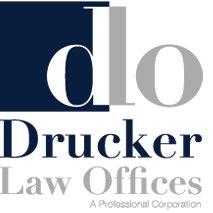Charitable Giving Through a Donor Advised Fund or a Private Foundation
There are an abundant number of reasons why people make charitable gifts, which include supporting an important cause (such as ending world hunger, saving the environment, supporting the arts, providing help to those in need), teaching younger generations to make the world a better place, and obtaining a charitable income tax deduction. Once the decision is made to make a charitable gift, the next step is to determine the best way to make the gift. Some people prefer to make a direct gift to a particular charity by writing a check to the charity. Fortunately, charities these days make it easy to make direct contributions through mail solicitations and on-line through their websites. However, to create a charitable giving plan and to create a family legacy through charitable giving, one should consider establishing a donor advised fund or a private foundation.
Of course, there are pros and cons to implementing both donor advised funds and private foundations. So, it is important to consider these pros and cons with your estate planning advisor to determine which one will work best for your family. In prior blog articles, we discussed how a donor advised fund and a private foundation operate. However, it is helpful to have a comparison of the donor advised fund and the private foundation to highlight the differences between the two charitable vehicles. The following chart highlights these differences:
|
Category |
Donor Advised Fund |
Private Foundation |
| Start-up Time | May be established immediately. | May take several weeks to a of couple months for the attorney to draft the appropriate documents to establish the foundation, file the documents with the State, and apply for a charitable tax exemption. |
| Start-up Costs | None. | Legal and accounting fees may be significant to prepare the foundation documents and the applications for a charitable tax exemption. |
| Creating the Fund | Established by the public charity supporting the donor advised fund. | Non-profit corporation or trust must be established to create the private foundation. |
| Tax Exempt Status | The donor advised fund borrows the supporting public charity’s tax exempt status. | Must apply to the IRS and the State of California to obtain tax exempt status. |
| Recommended Size | $5,000 or more. | Substantial assets required. |
| Limitation on Charitable Income Tax Deduction for Cash Gifts and Appreciated Stock | 50% of adjusted gross income. | 30% of adjusted gross income. |
| Limitation on Charitable Income Tax Deduction for Gifts of Appreciated Real Estate | Tax deduction available for the full fair market value of the property. The deduction is limited to 30% of adjusted gross income. | Although the tax deduction may be taken for the fair market value of marketable securities, the tax deduction for other property is limited to the lower of cost or fair market value and is limited to 20% of adjusted gross income. |
| Donor Control | The donor makes the grant recommendations, however the final decision rests with the public charity supporting the donor advised fund. | The donor retains complete control over investments and grant-making, subject to the IRS requirements. |
| Public Disclosure | There is no required public disclosure; a donor may make anonymous gifts. | Annual tax returns and filings disclosing gifts are open for public inspection. |
| Annual Distribution Requirements | None. | Must pay out for charitable purposes at least 5% of its asset value regardless of its annual income. |
| Annual Taxes | None. | Generally, it’s exempt from income tax; but, it’s subject to an excise tax of up to 2% of net investment gain, including net capital gains. |
| Annual Tax Filing | The public charity supporting the donor advised fund files an annual return, which includes the information regarding the donor advised fund. | Every private foundation is required to annually file a Form 990-PF with the IRS. Private foundations may be required to file IRS Form 4720 and pay excise taxes on certain activities or income. |
Please call us if you would like to discuss whether a donor advised fund or a private foundation suits your charitable giving needs.
If you would like to discuss this or other trusts and estates issues, please contact the attorneys at Drucker Law Offices, 468 North Camden Drive, 2nd Floor, Beverly Hills, CA 90210, 310.285.5375 Tel, 310.444.9754 Fax, www.druckerlaw.com


